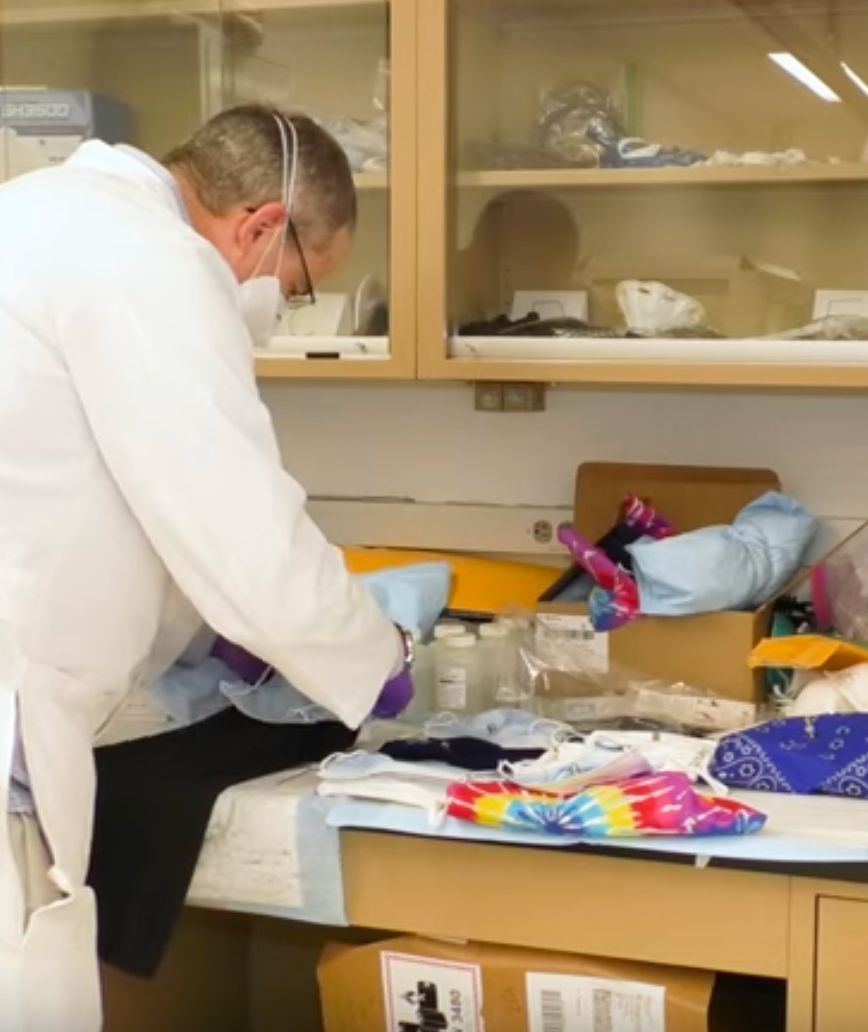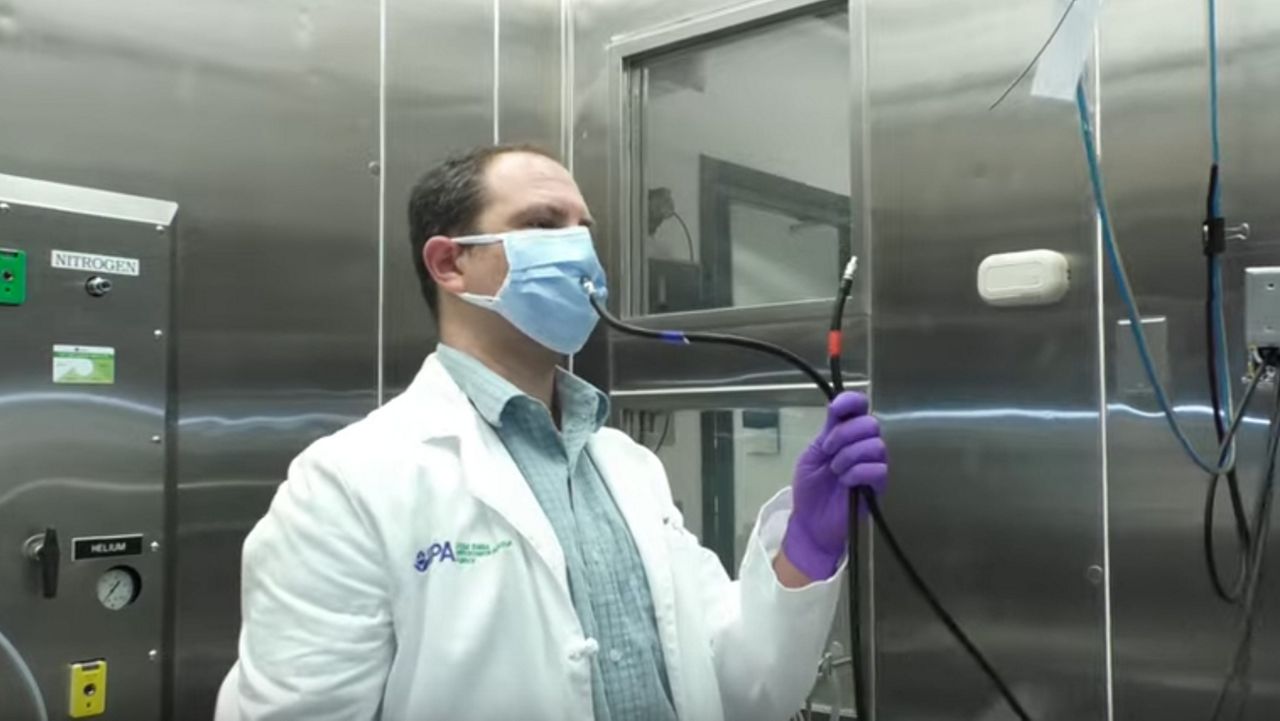Using a specialized chamber designed to study air pollution, researchers have been testing different types of face masks and what works best to protect against the coronavirus.
The researchers at the University of North Carolina at Chapel Hill found that having a mask that fits well and certain combinations for double masking can give the best protection.
“We’ve been looking at all kinds of masks, everything from consumer-grade and commercial masks to ways to modify your mask to improve it,” said UNC School of Medicine professor Phillip Clapp.
The idea of double-masking started getting attention in recent weeks when Dr. Anthony Fauci talked about it last month.
“If you have a physical covering with one layer, you put another layer on, it just makes common sense that it likely would be more effective,” Fauci said.
At the lab at UNC, Clapp said he had doubts that wearing two masks would add much protection. But the tests, a collaboration with the Environmental Protection Agency, found that double masks can help.
Clapp said wearing a surgical mask under a well-fitted cloth mask increased protection by 40%.

Wearing one or two masks is not enough, the UNC researchers said. Any mask needs to fit well.
“You really need to address fit and make sure whatever you’re wearing is tight to your face to get the most benefit,” Clapp said.
“Fit really matters,” UNC Associate Professor Emily Sickbert-Bennett said. “We did show that just improving the fit on a single mask increases 20% of its fitted filtration abilities.”
Using neck gaiters as face masks, which some public health officials warned against early in the pandemic, also performed well in the tests.
“The gaiter actually performed quite well in these studies because it’s tight to the face,” he said.
Wearing a surgical mask under a neck gaiter increases protection by 40%, Clapp added.
“If you have someone that can check the gaps around your face, that’s the way you can see the most immediate benefit from even a single mask,” he said.
Cloth masks and surgical masks both tend to be about 40% effective at filtering the air. Doubling up with a surgical mask and a fitted cloth mask makes it about 80% effective.
“We have many instances, studies, and investigations where individuals have been symptomatic in common areas and when everyone around them is wearing all different varieties of cloth masks, surgical masks of all types, there is no transmission,” Sickbert-Bennett said.
She said researchers don’t know how much filtration is actually needed to prevent getting COVID-19.
“The most effective masks are going to be the ones that everyone is wearing,” she said.



